ড. নওশাদ আমিন বর্তমানে মালয়েশিয়ার ন্যাশনাল ইউনিভার্সিটি অফ মালয়েশিয়া (Universiti Kebangsaan Malaysia) এর ইলেকট্রিকাল, ইলেকট্রনিক ও সিস্টেম ইঞ্জিনিয়ারিং বিভাগের প্রফেসর হিসেবে কর্মরত। তিনি একই বিশ্ববিদ্যালয়ে সোলার ফটোভোলটাইক রিসার্চ গ্রুপের প্রধানও। বাংলাদেশের রাঙ্গুনিয়া উপজেলার সরফভাটা গ্রামের সন্তান, তিনি ১৯৯০ সালে জাপানের মনবুশো (MONBUSHO) বৃত্তি গ্রহণ করে টোকিও ইনস্টিটিউট অব টেকনোলজি থেকে মাস্টার্স (১৯৯৮) এবং পিএইচডি (২০০১) অর্জন করেন, বিশেষত Thin Film Solar Cell বিষয়ে। জাপান ও মার্কিন যুক্তরাষ্ট্রে পোস্টডক্টোরাল গবেষণার পর তিনি মালয়েশিয়ায় শিক্ষক ও গবেষক হিসেবে যোগদান করেন। তার গবেষণার প্রধান ক্ষেত্রসমূহ হলো: মাইক্রোইলেকট্রনিক্স, নবায়নযোগ্য শক্তি, সৌরফটোভোলটাইক অ্যাপ্লিকেশন, এবং Thin Film Solar PV ডেভেলপমেন্ট। এছাড়া, তিনি মালয়েশিয়া ও আন্তর্জাতিক প্রকল্পের লিডার এবং বহু গবেষণাপত্র, বই ও বইয়ের অধ্যায় প্রকাশ করেছেন।
💬 প্রশ্নোত্তর পর্ব:
প্রশ্ন: আপনার সমন্ধে আমাদের পাঠকদের একটু বলুন।
উত্তর: আমার নাম নওশাদ আমিন। গ্রামের বাড়ি চট্টগ্রামের রাঙ্গুনিয়া উপজেলার সরফভাটা গ্রামে, তবে ছোটবেলা থেকেই চট্টগ্রাম শহরের নন্দনকাননের নানাবাড়িতেই বেড়ে ওঠা। বাবা ডাক্তার নুরুল আমিন চৌধুরী স্বাধীনতা পরবর্তী সময়ে কর্ণফুলী পেপার মিলের হাসপাতালের প্রধান চিকিৎসক ছিলেন। মাধ্যমিক ও উচ্চমাধ্যমিক পর্যায় সম্পন্ন করেছি কুমিল্লা ক্যাডেট কলেজে। এরপর জাপানের মনবুশো বৃত্তিতে শিক্ষাজীবন শুরু করি এবং টোকিও ইনস্টিটিউট অব টেকনোলজি থেকে পিএইচডি অর্জন করি। এরপর মটোরোলাতে কাজ করেছি এবং আমেরিকার সাউথ ফ্লোরিডা ইউনিভার্সিটিতে পোস্টডক্টোরাল ফেলোশিপ সম্পন্ন করেছি। বর্তমানে মালয়েশিয়ায় গবেষক ও শিক্ষক হিসেবে কর্মরত। পারিবারিকভাবে স্ত্রী জান্নাতুল ওয়াসুল এবং তিন কন্যা নিয়ে বসবাস করছি।
প্রশ্ন: জাপানে দীর্ঘদিন উচ্চশিক্ষা গ্রহণ ও গবেষণা করার পর এখন আপনি মালয়েশিয়ায় গবেষণা করছেন। কেমন লাগছে?
উত্তর: জাপান ও মার্কিন যুক্তরাষ্ট্রে গবেষণা করার পর মালয়েশিয়ায় শুরুতে চ্যালেঞ্জ ছিল। বেতন কম, ল্যাবরেটরি সীমিত। তবে ধীরে ধীরে শূন্য থেকে বিশ্বমানের ল্যাব গড়ে তোলা হয়েছে। প্রায় ১৫ জন পিএইচডি এবং ২০ জন স্নাতকোত্তর গবেষক আমার তত্ত্বাবধানে কাজ করেছে। আন্তর্জাতিক ফান্ড এবং জার্নালে প্রকাশনার সুযোগ হয়েছে। এই অভিজ্ঞতা তরুণদের উৎসাহ দিতে এবং গবেষণায় আত্মবিশ্বাস বাড়াতে গুরুত্বপূর্ণ।
প্রশ্ন: সোলার সেল ব্যবহার এখনো কেন সীমিত?
উত্তর: নেতিবাচক প্রচার এবং দুর্বল নীতিমালা মূল কারণ। বিশ্বে ৩৫০-এরও বেশি গিগাওয়াট ক্ষমতার পারমাণবিক চুল্লি প্রতিস্থাপন করছে সোলার প্যানেল। বাংলাদেশে দুর্বল আমদানি ও পরীক্ষণ নীতিমালার কারণে মানহীন প্যানেল প্রবেশ করেছে, যা নেতিবাচক ধারণা সৃষ্টি করেছে।
প্রশ্ন: Grid-connected photovoltaic system নিয়ে আপনার গবেষণার সংক্ষিপ্ত বিবরণ দিন।
উত্তর: ১৯৪৬ সালে সৌরকোষ আবিষ্কারের পর বিভিন্ন পদার্থের উপর গবেষণা হয়েছে। বর্তমানে বিভিন্ন দেশে মেগা ওয়াট ক্ষমতার সোলার ফার্ম থেকে বিদ্যুৎ সরবরাহ হচ্ছে। বাংলাদেশে ৩ মেগাওয়াট ক্ষমতার ফার্ম সম্প্রতি গ্রীডে যুক্ত হয়েছে। আগ্রো-ভোল্টাইকস প্রয়োগে কৃষি এবং বিদ্যুৎ উৎপাদন একসাথে সম্ভব।
প্রশ্ন: বাংলাদেশে সোলার সেলের ভূমিকা কি হতে পারে?
উত্তর: অবশ্যই। তবে সঠিক নীতিমালা, শিক্ষা ও গবেষণা গুরুত্বপূর্ণ। দেশীয় গবেষক ও প্রতিষ্ঠানদের পেটেন্ট এবং গবেষণা প্রকাশনার মাধ্যমে স্বীকৃতি দিতে হবে। কম খরচের সোলার প্যানেল তৈরির চেয়ে দীর্ঘমেয়াদি প্রজন্ম গঠনের দিকে মনোযোগ দেওয়া জরুরি।
প্রশ্ন: প্রবাসে থেকেও বাংলাদেশের তরুণদের জন্য আপনার কাজ সমন্ধে বলুন।
উত্তর: আমার গবেষণাগারে অর্ধেক ছাত্রছাত্রী বাংলাদেশী। তাদের মাস্টার্স, পিএইচডি এবং পোস্টডক ট্রেনিং দিচ্ছি। যারা দেশে ফিরে যায় তাদের কর্মক্ষেত্রে সমন্বয় করি। বিদেশে থাকা ছাত্রদের মাধ্যমে নতুন সম্ভাবনা উন্মোচিত হয়।
প্রশ্ন: Midori Bangla Foundation সমন্ধে বলুন।
উত্তর: ১৯৯১ সালের ঘূর্ণিঝড়ের পর গ্রামাঞ্চলের স্কুল পুনর্নির্মাণের কাজ দিয়ে ফাউন্ডেশন শুরু। বন্যা ও অন্যান্য দুর্যোগে অনাথ ও অর্থাভাবে পড়ুয়া ছাত্রছাত্রীদের জন্য বৃত্তি, ঢেউটিন, পোশাক বিতরণ করা হয়।
প্রশ্ন: তরুণ শিক্ষার্থীদের জন্য আপনার পরামর্শ কি?
উত্তর: বিজ্ঞান সবক্ষেত্রে রয়েছে। নিজের লক্ষ্য নির্ধারণ করুন, পরিশ্রম করুন, ধৈর্য ধরুন এবং আল্লাহর উপর বিশ্বাস রাখুন। মানুষের জন্য কাজ করুন, প্রশংসার অপেক্ষায় থাকবেন না।
🔗 প্রোফাইল লিংক:
Nowshad Amin – ResearchGate
📧 Contact:
[email protected]
[email protected]
ড. নওশাদ আমিনের গবেষণা সৌরশক্তি এবং নবায়নযোগ্য প্রযুক্তির ক্ষেত্রে বাংলাদেশের তরুণ গবেষকদের জন্য অনুপ্রেরণার উৎস। তার আন্তর্জাতিক অভিজ্ঞতা, সামাজিক দায়বদ্ধতা এবং শিক্ষাগত প্রচেষ্টা বাংলাদেশের বৈজ্ঞানিক সম্প্রদায়কে সমৃদ্ধ করছে। বিজ্ঞানী অর্গ টিম ড. আমিনের এই সাফল্যের জন্য শুভকামনা জানাচ্ছে এবং আশা রাখে, তার কাজ দেশের নবপ্রজন্মকে উদ্ভাবন ও গবেষণার পথে অনুপ্রাণিত করবে।

Renewable Energy for Developing Countries – Insights from Dr. Nowshad Amin
Dr. Nowshad Amin is a Professor in the Department of Electrical, Electronic & Systems Engineering at the National University of Malaysia (Universiti Kebangsaan Malaysia). He also leads the Solar Photovoltaic Research Group under the Solar Energy Research Institute (SERI). Originally from Sarafbhata, Rangunia, Chattogram, Bangladesh, Dr. Amin completed his secondary and higher secondary education with top honors. He earned a diploma in Electrical Engineering (1994) from Gunma National College of Technology, a Bachelor’s in Electrical & Electronic Engineering (1996) from Toyohashi University of Technology, and both a Master’s (1998) and PhD (2001) in solar photovoltaic technology from Tokyo Institute of Technology.
Dr. Amin pursued postdoctoral research in the United States and briefly worked at Motorola Japan Ltd. His expertise spans microelectronics, renewable energy, solar photovoltaic applications, and thin film solar PV development. He has led and co-researched numerous Malaysian and international projects, holds patents, and has published extensively in peer-reviewed journals and book chapters. He is dedicated to promoting affordable solar photovoltaic technologies, particularly in developing countries across South and Southeast Asia.
💬 Q&A Session:
Q: Can you briefly introduce yourself to our readers?
A: My name is Nowshad Amin. I was born in Sarafbhata, Rangunia, Chattogram, Bangladesh, but grew up in Chattogram city. My father, Dr. Nurul Amin Chowdhury, was a physician and involved in local politics, while my mother, Dilara Amin, focused on raising my siblings and me. I completed my secondary and higher secondary education at Comilla Cadet College, achieving top ranks. In 1990, I received the Japanese MONBUSHO scholarship and studied electrical engineering, earning a diploma, bachelor’s, master’s, and PhD in solar photovoltaic technology. I worked at Motorola Japan and completed a postdoctoral fellowship at the University of South Florida. Currently, I live in Bangi, Malaysia with my wife, three daughters, and my mother, and continue my research in solar energy.
Q: After long years of study in Japan, how has your experience been working in Malaysia?
A: Moving from Japan and the U.S. to Malaysia was initially challenging—salaries were lower and labs limited. However, over time, I have built world-class laboratories from scratch. Under my supervision, 15 PhD students and over 20 postgraduate researchers have completed their degrees. We have published internationally and received funding from both Malaysian and international agencies. This experience has strengthened my confidence and allowed me to inspire the next generation of researchers.
Q: Despite optimism about solar cells, their adoption seems limited. Why?
A: This is largely due to negative publicity and weak policies. Globally, solar panels have already replaced over 350 GW of conventional energy capacity in countries like China, Japan, Germany, Spain, the U.S., and India. In Bangladesh, weak import regulations have allowed low-quality panels, creating a negative perception among the public.
Q: Can you explain your research on grid-connected photovoltaic systems?
A: Since the first 6% efficient solar cell was developed at Bell Labs in 1946, research has improved efficiency above 45% for space applications. Grid-connected systems now allow mega-watt scale solar farms to feed electricity directly into national grids. In Bangladesh, a 3 MW solar farm was recently connected. Using agro-photovoltaic concepts, solar panels can be elevated to allow farming underneath, combining agriculture and electricity generation.
Q: What role can solar cells play in Bangladesh?
A: They can play a significant role, but strong policies, education, research, and commercial support are essential. Local researchers should focus on patents and publications to gain recognition. Rather than only focusing on low-cost panels, we should prioritize creating a confident, capable generation of scientists.
Q: How are you supporting young Bangladeshi researchers from abroad?
A: Around half of the students in my lab are Bangladeshi. I provide scholarships, master’s and PhD supervision, and postdoctoral training abroad. We maintain links with those returning to Bangladesh and facilitate workshops and seminars. Through international collaborations, new opportunities for Bangladeshi students emerge.
Q: Can you tell us about the Midori Bangla Foundation?
A: The foundation started after the 1991 cyclone when I donated my savings to rebuild a village school. Since then, we have provided scholarships, disaster relief, and support to underprivileged students in Bangladesh. International donors, particularly from Japan, have supported our work.
Q: What advice do you have for young scientists?
A: Science exists in all fields. Identify where you want to be in 10 or 20 years, plan accordingly, work diligently, and maintain patience. Respect others, avoid envy, and place trust in Allah. Focus on contributing to humanity rather than seeking praise. Your talents will eventually be recognized.
🔗 Profile Link:
Nowshad Amin – ResearchGate
📧 Contact:
[email protected]
[email protected]
Dr. Nowshad Amin’s work in solar photovoltaic research and renewable energy demonstrates a commitment to both scientific advancement and societal impact. His efforts inspire young Bangladeshi researchers, linking local talent with global opportunities. The biggani.org team congratulates Dr. Amin on his achievements and hopes his work continues to motivate innovation and research in Bangladesh and beyond.

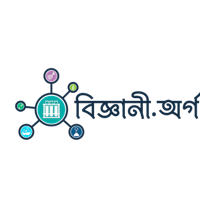
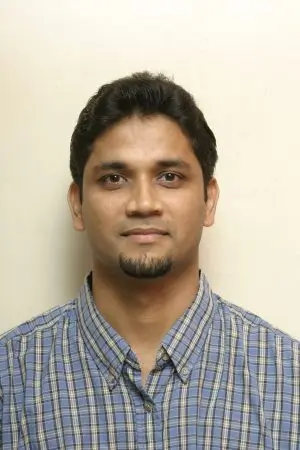


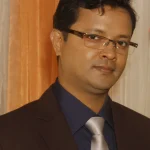
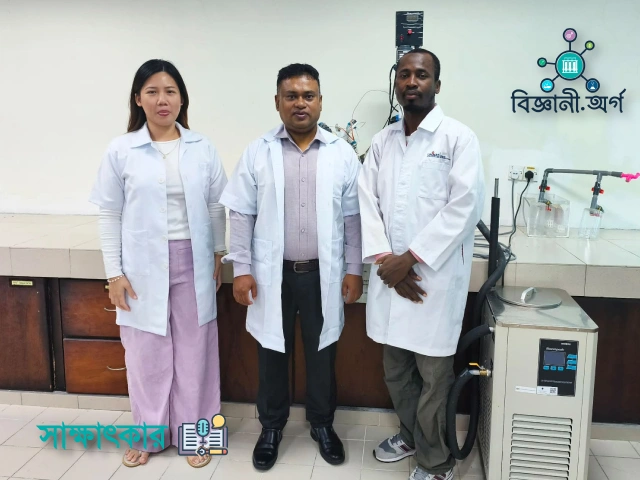
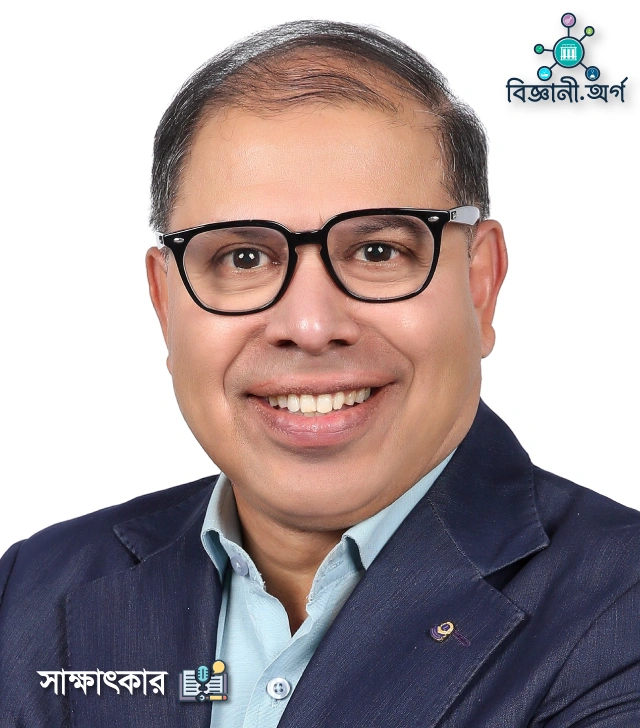
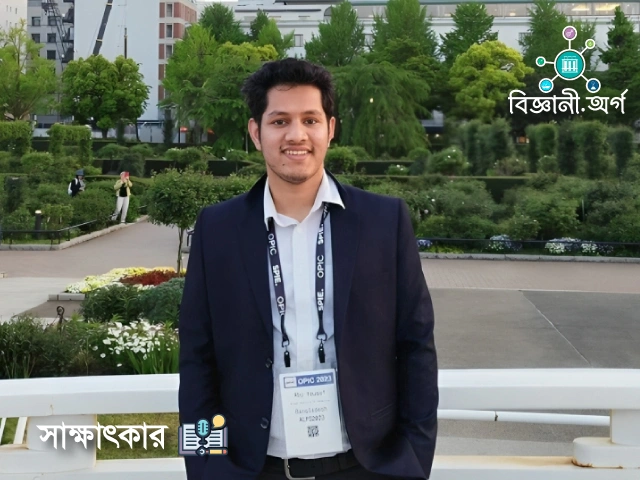
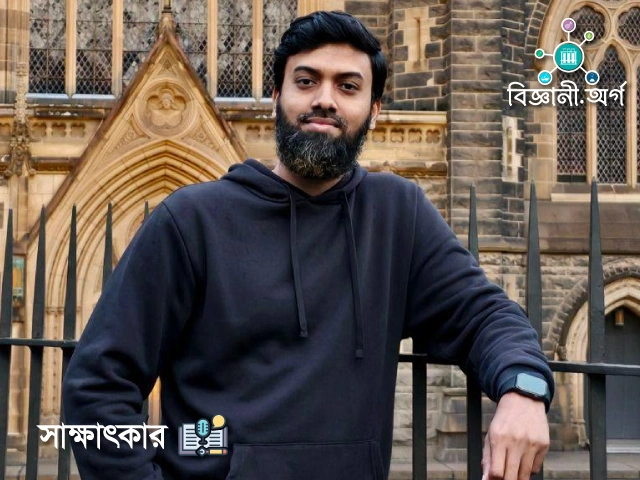
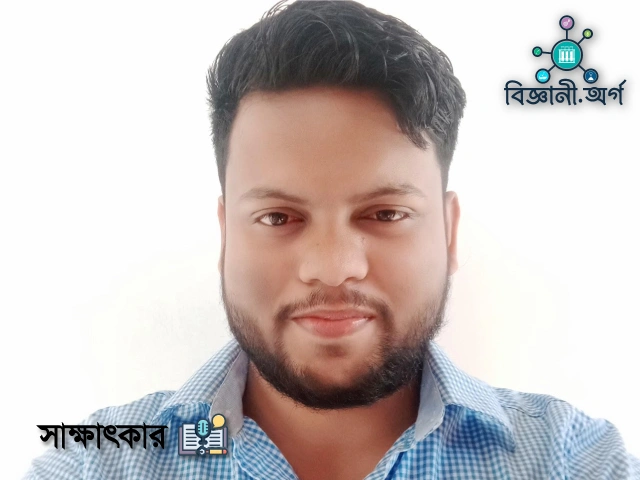
Leave a comment